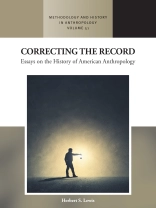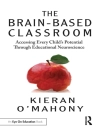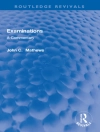The critique of twentieth-century American anthropology often portrays anthropologists of the past as servants of colonialism who “extracted” information from indigenous peoples and published works causing them harm. Herbert S. Lewis recovers the reality of the first century of American anthropology as a vital scholarly discipline that rejected established ideas of race, insisted on the value of very different ways of life, and delivered irreplaceable ethnographic studies. This volume presents powerful refutations of the accumulated damaging myths about anthropology’s history.
Зміст
List of Illustrations
Acknowledgements
Introduction
Chapter 1. Does a Decolonized Anthropology Require Reinterpreting the Past?
Chapter 2. American Anthropology and Colonialism: A Factual Account
Chapter 3. Alfred L. Kroeber’s Career and Contributions to California’s Indigenous Peoples
Chapter 4. American Anthropology, the Cold War, and Intellectual History
Chapter 5. Anthropology’s Camelot Myth and What We Can Learn from It
Chapter 6. Philleo Nash: An Anthropologist Serving the People
Chapter 7. A Forgotten Innovator: Haviland Scudder Mekeel and the Expansion of Anthropology
Chapter 8. Walter R. Goldschmidt: A Multi-dimensional Pioneer
Chapter 9. Salvage Anthropology Considered: On Redman’s Prophets and Ghosts
Chapter 10. Four Fields and Sacred Bundles: On Segal and Yanagisako, Unwrapping the Sacred Bundle: Reflections on the Disciplining of Anthropology
Chapter 11. Ishi and Kroeber Again: Wild Men in the Eyes of Douglas Sackman
Conclusion
Index
Про автора
Herbert S. Lewis is Professor Emeritus of Anthropology and African Studies at the University of Wisconsin-Madison. Some of his publications are Jimma Abba Jifar: An Oromo Monarchy (orig. 1965; Red Sea Press, 2001), After the Eagles Landed: The Yemenites of Israel (Taylor & Francis, 1989), Oneida Lives: Long-Lost Voices of Wisconsin Oneidas (University of Nebraska Press, 2005), and In Defense of Anthropology: An Investigation of the Critique of Anthropology (Taylor & Francis, 2014).












